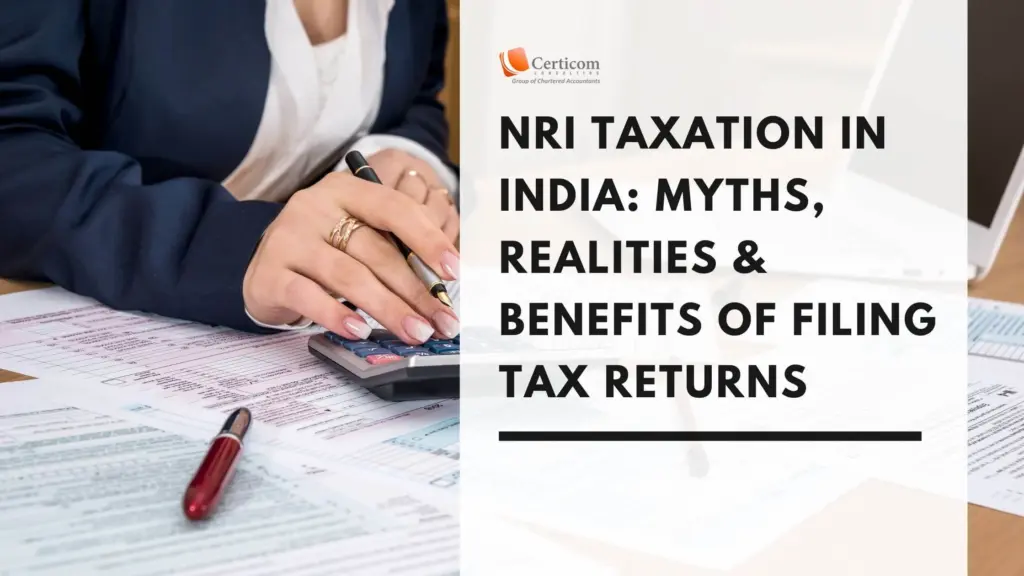NRI Taxation in India: Myths, Realities & Benefits of Filing Tax Returns

No, NRIs Are Not Exempt from Income Tax in India
A widely circulated misconception on social media claims that from April 1, 2025, all Non-Resident Indians (NRIs) will be exempt from paying income tax in India if their Indian income is below ₹12 lakhs. This is completely inaccurate.
The zero-tax benefit for income up to ₹12 lakhs introduced in the Union Budget 2025 is exclusively for Resident Individuals who opt for the New Tax Regime. It is not applicable to NRIs, Hindu Undivided Families (HUFs), or non-resident taxpayers.
What Has Actually Changed?
Under the New Tax Regime, effective from April 1, 2025, resident individuals earning up to ₹12 lakhs annually can avail a rebate of ₹60,000 under Section 87A, effectively reducing their tax liability to zero. However, this rebate is not available to NRIs.
On the contrary, NRIs will now be required to file their Income Tax Return (ITR) in India if their total Indian income exceeds ₹4 lakhs in a financial year starting April 1, 2025. Until FY 2024–25, this threshold was ₹3 lakhs under the new regime.

When Is an NRI Required to File a Tax Return in India?
As per Indian tax laws:
NRIs must file a return if their total taxable income in India exceeds ₹4 lakhs from FY 2025–26 onward (₹3 lakhs for FY 2024–25).
They are taxed only on income earned or accrued in India, not on their global income.
Common Reasons NRIs Avoid Filing Tax Returns
Despite being liable, many NRIs fail to file returns due to:
Misunderstanding the legal requirement.
Perception of income being too small.
Dependence on Tax Deducted at Source (TDS) as full and final tax.
Lack of time or documentation.
Belief that TDS eliminates the need for return filing.
Why NRIs Should File Their Tax Returns in India
Even if not mandatorily required, filing a return offers several benefits:
✅ Claim Refund for Excess TDS
Most of an NRI’s income in India — including interest on NRO accounts, dividends, rental income, and capital gains — is subject to TDS at flat rates. Often, the actual tax liability is lower than the TDS deducted. Filing a return is the only way to claim a refund for such excess deduction.
✅ Avoid Future Tax Notices or Litigation
Non-filing may lead to scrutiny assessments, reopening of cases, or notices for source of funds (especially in property transactions). Filing a return prevents avoidable litigation and establishes a clear record with the Income Tax Department.
✅ Helpful for Overseas Tax Reporting
Indian tax returns act as a supporting document while reporting Indian income in the home country. This ensures compliance with global tax laws and transparency.
✅ Claim Foreign Tax Credit (FTC)
Filing a return enables NRIs to claim credit in their home country for taxes paid in India, thus avoiding double taxation.

✅ Ease of Financial Transactions and Loan Processing
Having a regular tax filing history in India is helpful when applying for loans, buying property, or conducting high-value transactions in India.
It is important to stay informed and compliant, especially with evolving tax laws. The new rebate of ₹60,000 under Section 87A is a welcome move—but it benefits only Resident Individuals, not NRIs.
Regardless of income thresholds, NRIs are strongly advised to file their Income Tax Return in India to claim refunds, stay compliant, and avoid potential legal complications in the future.
Related Post
Cost Inflation Index for FY 2025-26: Impact on LTCG Tax
Loan Interest Deductions: How to Claim and Avoid Tax Scrutiny
Book A One To One Consultation Now For FREE
How can we help? *




